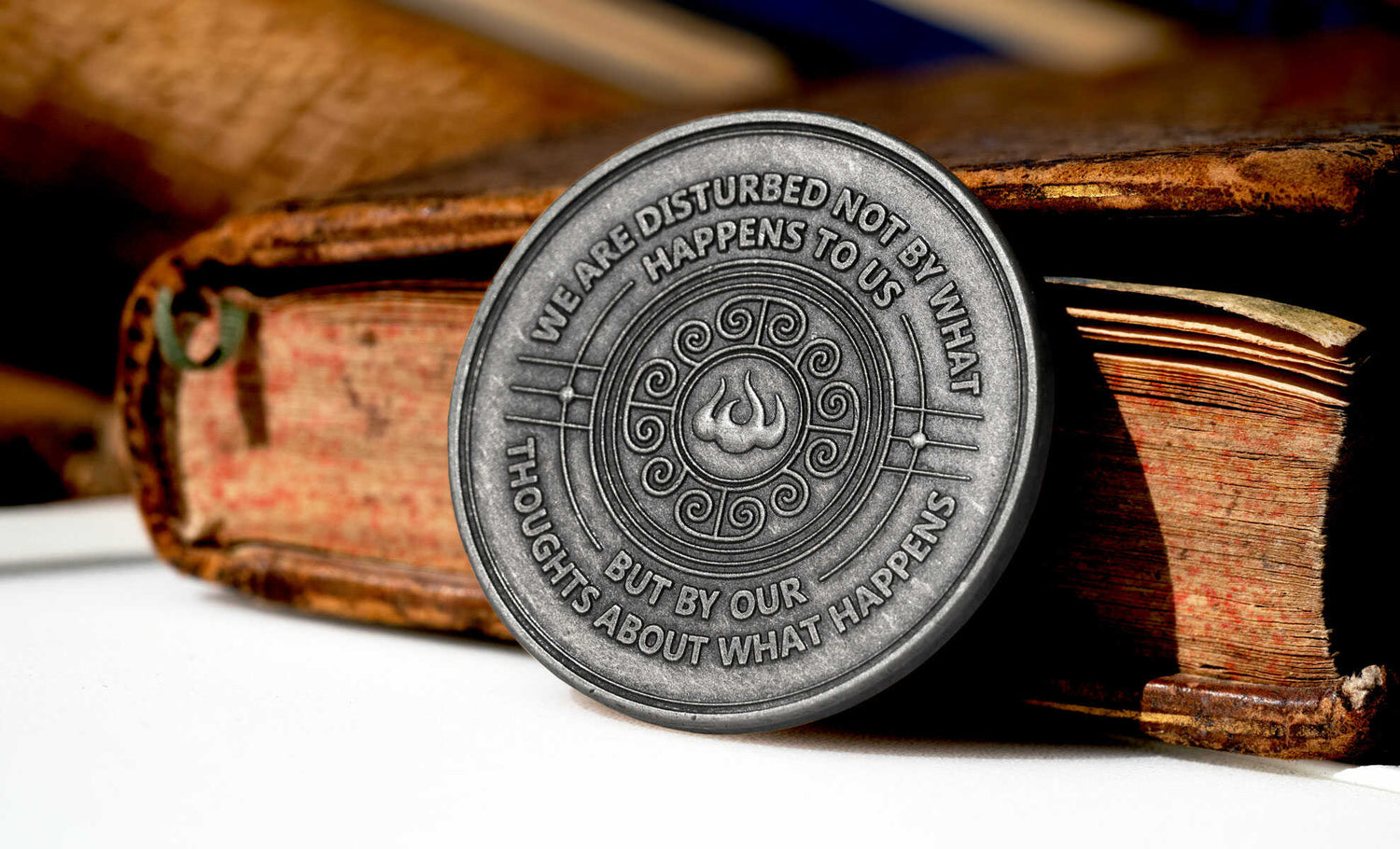The Stoic philosophy, practiced by ancient thinkers like Marcus Aurelius, Seneca, and Epictetus, is a timeless guide for leading a life of purpose, resilience, and tranquility. In a world filled with distractions, desires, and uncertainties, Stoicism teaches us how to maintain inner peace and focus on what truly matters. The Stoic Mindset is built on key principles that guide us to live better, more intentional lives.
Let’s explore these pillars of the Stoic Mindset, each offering a way to strengthen your mind and spirit in the face of everyday challenges.
- Reason
At the core of Stoicism is the power of reason. The Stoics believed that our ability to think clearly and rationally is what sets us apart. Using reason means making decisions based on wisdom, logic, and understanding rather than emotions or impulses. By cultivating reason, we ensure that our actions and thoughts align with what is good and just.
Practical Tip: When facing a difficult decision, pause and ask yourself, “What is the rational choice here? What would a wise person do in this situation?”
- Desire
Desire, when unchecked, can lead us astray. Stoicism teaches us to want less and avoid temptation. By controlling our desires, we prevent unnecessary suffering. Instead of constantly chasing more, we learn to be content with what we have, focusing on what is essential.
Practical Tip: Practice gratitude by taking a moment each day to reflect on the things you already have, rather than what you wish to acquire.
- Improvement
A Stoic never settles. The journey of self-improvement is lifelong, with a focus on being better today than you were yesterday. This doesn’t mean striving for perfection but rather committing to continuous growth and learning.
Practical Tip: Set small, daily goals for self-improvement, whether it’s learning something new, breaking a bad habit, or simply being kinder to yourself and others.
- Rejection
To live a virtuous life, we must actively reject bad influences. Whether it’s negative people, harmful habits, or toxic environments, the Stoic chooses to distance themselves from anything that does not contribute to their well-being or moral character.
Practical Tip: Reflect on your surroundings—are there influences in your life that detract from your goals or values? Make a conscious effort to remove or distance yourself from them.
- Memento Mori
One of the most powerful Stoic reminders is Memento Mori, or “remember that you must die.” This is not meant to be morbid but instead encourages us to live fully and be prepared for whatever may happen. It serves as a reminder to not take life for granted and to focus on what truly matters.
Practical Tip: Start each day with the reminder that life is finite, and let this thought guide your actions and decisions.
- Simplicity
Stoicism champions simplicity in all things—whether it’s your lifestyle, possessions, or even your thoughts. By simplifying your life, you remove the unnecessary and make room for what truly matters: peace of mind and personal growth.
Practical Tip: Declutter your physical space and your mental space. Focus on eliminating distractions and excess, and practice contentment with less.
- Live
A core Stoic belief is to live fully in the present. Yesterday is gone, and tomorrow is uncertain, so the present moment is where we should direct our attention. By living in the present, we can experience life more deeply and meaningfully.
Practical Tip: Practice mindfulness by being fully present in your activities. Whether it’s a conversation, a task, or a moment of stillness, give it your full attention.
- Focus
The Stoic mind is laser-focused on the most important priorities in life. Stoicism encourages us to pursue our highest priority, whether that’s a personal goal, a virtue, or a responsibility. Don’t get distracted by trivial matters that pull you away from your true purpose.
Practical Tip: Make a list of your top three priorities and focus your energy on them. Let go of anything that doesn’t align with these key goals.
- Control
One of the most famous Stoic teachings is to focus only on what you can control and let go of what you cannot. Worrying about external factors—such as the actions of others or the outcome of situations—only brings stress and frustration. Instead, Stoics focus on their own actions, reactions, and mindset.
Practical Tip: When you’re feeling overwhelmed, ask yourself, “Is this within my control?” If not, let it go and focus on what you can influence.
- Acceptance
Stoicism teaches us the power of acceptance. Life is full of events that are outside our control, and resisting these realities only leads to suffering. By accepting what we cannot change, we free ourselves from frustration and focus on what we can do.
Practical Tip: Practice accepting both the good and bad in life with grace. When challenges arise, remind yourself that they are part of the human experience and an opportunity for growth.
Conclusion
The Stoic Mindset is not just a philosophy; it’s a way of life. By incorporating these principles into your daily routine, you’ll find yourself better equipped to handle life’s ups and downs with clarity, resilience, and purpose. The Stoics believed that true happiness comes from within—from mastering the self, controlling desires, and accepting the world as it is.
As you continue your journey toward a Stoic mindset, remember to simplify your life, focus on what matters, and live fully in the present moment.
Embrace Stoicism, and let it guide you to a life of wisdom, peace, and fulfillment.




Leave a comment
All comments are moderated before being published.
This site is protected by hCaptcha and the hCaptcha Privacy Policy and Terms of Service apply.